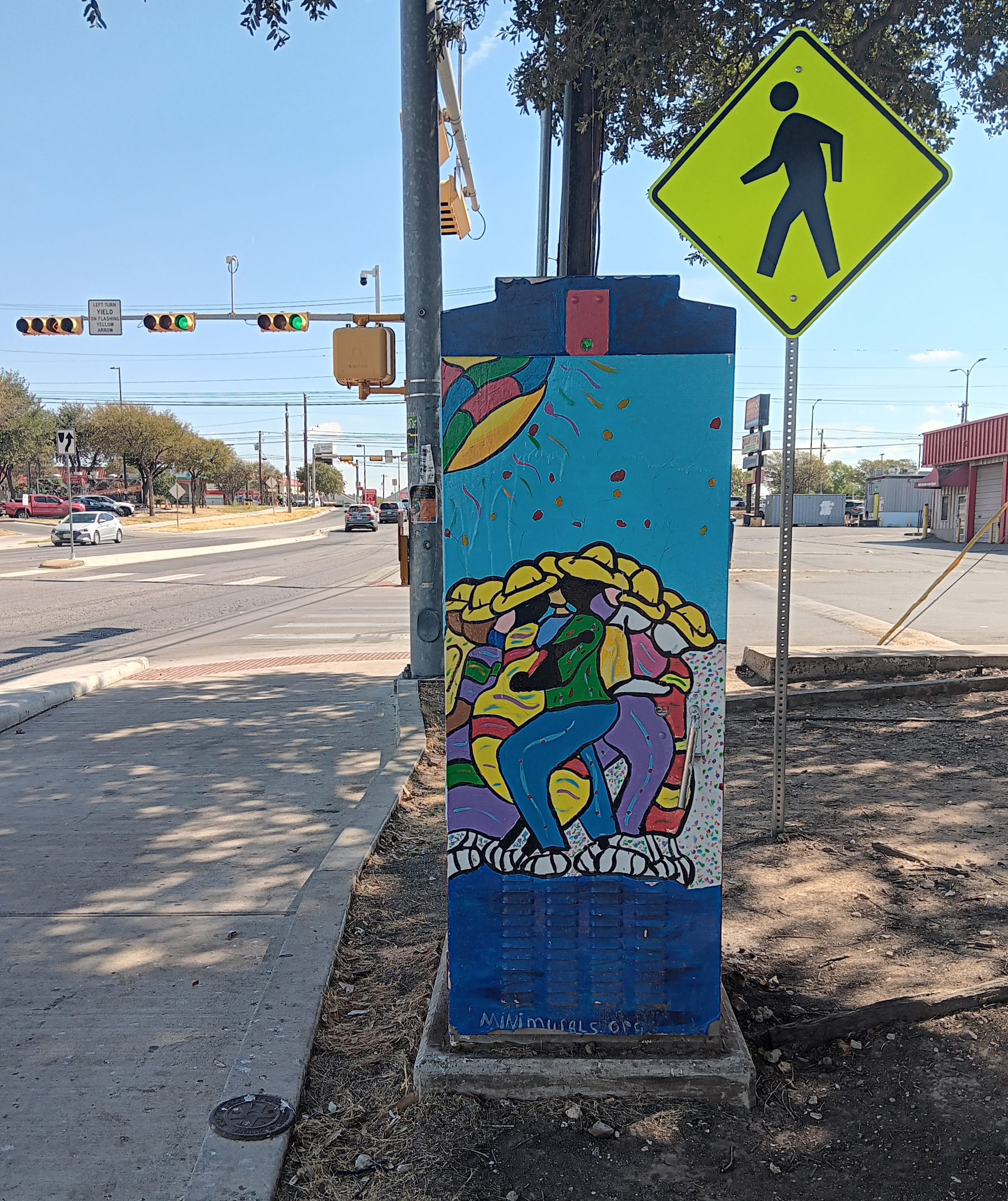Pastoral ministry is a life, not a technology. How-to books treat pastoral ministry like a technology. That’s fine on one level—pastoral ministry does require certain skills, and I need all the advice I can get. But my life as a pastor is far more than the sum of the tasks I carry out. It is a call from God that involves my whole life. The stories I read helped me to understand my life comprehensively. My life, too, is a story, and it is the narrative quality of my life that makes my ministry happen. Others see and participate in the story as it is told. I have discovered that when I follow Jesus in my everyday life as a pastor, people meet Jesus through my life.

Currently reading: Treasure Island by Robert Louis Stevenson 📚
Ross Byrd’s five signs of a true leader:
- Articulate Purpose
- Assume Responsibility
- Provide A Plausibility Structure
- Balance Focus with Flexibility
- Prove Yourself Trustworthy
He lands the plane beautifully with these closing paragraphs:
The hardest leadership lesson in the world is this: trust is fragile. There is only one thing that can keep the flickering flame alight, and it is not sexy. You must stay true, no matter what. As mundane as it may sound, this has become the central goal of my life.
It is a cliche in stories and films to depict kings and generals on the frontlines, leading their people into battle. But in real life nowadays, it’s almost unheard of. Just as modern warfare reassigned generals to rooms with radios and radars, far from the blood and mud of the battlefield, so too modern wisdom has reassigned leaders to places and spaces far removed from the day-to-day labors of their people. “Relentless delegation” is the wave of the future. There are more business books written today about how to “work oneself out of a job” than there are about how to lead others within one. I have no major qualms with delegation, especially if you’ve already cut the path for others to walk. However, the increasing removal of founders, owners and officers from the daily lives and work of their organizations’ members does seem to underestimate the primary source of human motivation.
What moves people, really? Why do people persist in doing hard things? Why venture into the wilderness? Why rush into battle? Despite what a million “mission and vision” statements may proclaim, people follow people, not principles. When we delegate, when we scale, we invite new benefits, of course. But we also open ourselves up to new forms of fragility. It doesn’t mean a leader shouldn’t grow his organization, anymore than a father and mother shouldn’t grow their family. Growth is a blessing. And yet, at every level of growth, the question must still be asked: Not, “What are they working for?” but “Who are they working for? Do they have someone to follow who will not let them down?” For my money, this is what makes or breaks our companies, communities, ministries and families. We are not Christ, but if we hope to be good leaders, we must be like him in this way most of all. We must become trustworthy.
photo cred (and staging) goes to: Bella


Currently reading: The Art of Pastoring by David Hansen 📚
I’m picking out a few gems from Abigail Favale’s “Rethinking Complementarity":
- "I want to better understand and articulate the meaning of sexual difference, yet am simultaneously wary of accounts of sexual difference that rely heavily on stereotypes."
- Favale distinguishes between accounts that ground complementarity in 'first-order' sex differences and those that focus on 'second-order' differences: "First-order sex differences are differences that are truly binary and true of all men and women. Men have bodies organized according to the potential to produce small gametes and generate through insemination. Women have bodies organized according to the potential of ovulation and gestation. Here, our meaningful difference is stark. Another example of a first-order sex difference might be natural hormonal production. While females produce some testosterone naturally, post-puberty, the female range does not overlap with the male range at all. Here, again, is a stark, bifurcated difference. First-order differences are differences arising from sexual dimorphism that are sharp and distinct."
- "Second-order differences, then, are fuzzier. Here, I am using this term to refer to psychological or personality-based differences—differences informed by biology, perhaps, but not strictly biological. Unlike first-order differences, these differences do exhibit a fair amount of overlap between men and women. Perhaps the simplest way to explain this distinction is this: second-order sex differences fall along a spectrum with a good deal of overlap; first-order sex differences do not."
- (Those accounts that ground complementarity in 'second-order' differences are termed "Fractional Complementarity." Favale, by contrast, is after what she terms "Integral Complementarity.")
- "To be clear, simply acknowledging, discussing, or studying differences between the sexes does not result in fractional complementarity. We do not need to be afraid to discuss these kinds of differences. However, I believe we veer into fractionalism when a trait that is essentially human is presented as belonging overwhelmingly or even exclusively to one sex or the other. One of the hallmarks of integral complementarity is the claim that our differences, while meaningful and significant, in no way preclude each sex’s ability to develop as full human beings. To put this another way, fractional complementarity arises when second-order differences are assumed to be just as binary and static as first-order differences. That is the first step toward fractionalism."
- "This leads me to a claim that I am testing out in this essay: while second-order differences such as the ones I have been discussing play a part in complementarity, this shows up at an aggregate level, but not always, or even typically, at the level of individual men and women. Ergo, these differences cannot be the 'ground' of complementarity or our respective geniuses, because then a great number of men and women would be exempt from that genius. While analysis and discussion of second-order differences is important and fruitful, our understanding of complementarity should be primarily grounded in first-order difference—grounded, in other words, in our asymmetrical embodiment."
- Summarizing some key points from John Paul II's Theology of the Body: "On the whole, JPII’s account of sexual difference and complementarity emphasizes mutuality, reciprocity, and self-gift. He is very restrained when it comes to making sharp distinctions between men and women in terms of traits and roles, beyond those that lie in first-order sexual differences, e.g. motherhood and fatherhood. But there is one key area where he highlights a specific call or task that God has placed on the man; it is in this context of the dynamic of gift."
- For men: "The special task or role JPII specifically entrusts to men is to be guardians of the freedom of the gift. Men are called to steward their strength and power into an interior battle against evil, against the effects of sin which distort love into domination. This entails cultivating their own internal freedom, in order to ensure the freedom of women from appropriation and domination."
- For women: "A special task and mission entrusted to women also comes through in JPII’s writings, a prophetic call that is connected to our bodies and their maternal potential. Whether or not we ever become mothers in a literal, biological sense, our bodies are structured according to the potential to generate a new human life within—to house, protect, and foster a new human life in its most hidden and vulnerable stages. Women who never have children still have bodies characterized by maternal potential and can live attuned to those rhythms. JPII calls women “sentinels of the invisible”—we are the primary guardians of the dignity of human life, especially persons who are overlooked, discarded, unseen."
- "This understanding of complementarity—of our respective missions in the world, based on the prophetic call of our embodiment—truly reflects an integral vision, a vision of men and women as whole persons, which includes our freedom to respond to this call. Our meaningful difference, rooted not in abstracted, polarized traits, but in the genius of our bodies, presents to us a mission and a task—one we can choose to accept or reject."
- "Fractionalism tends to view differences as static, fixed, as if we are pre-programmed to think, feel, and act in two polarized modes. But any truly Catholic theory of complementarity must include an emphasis on human freedom and moral agency; even if we are responsive to and influenced by biological and social forces, we are not wholly determined by them. We are not machines. We are animals, yes, but moral and rational animals, capable of self-shaping choices and acts, particularly when cooperating with divine grace."
- "Authentic masculinity, then, is not about exhibiting male-typical personality traits or embodying a stereotype; it is living and embodying holiness as a man. Authentic femininity is not about ticking off boxes on the pink trait list. True femininity is to manifest holiness as a female human being. It is holiness that makes our sexual difference truly iconic, enabling our visible bodies to proclaim what is invisible, to reveal the glory of God—the man and the woman who are fully alive."


Currently reading: Meditations for Mortals by Oliver Burkeman 📚
I’m finally getting around to this Mary Townsend piece on ditching your smartphone. Her advice is difficult to gainsay, even if it’s quite countercultural:
It is perfectly possible to ditch the phone. While it’s still more practical, in one sense, to travel to work via and with your small computer, you do not have to, and there are manifold workarounds that you can and will learn, carefully, again. Get an alarm clock. The small notebooks you keep buying now have a use. Carry a pencil. Resolve to occasionally get lost. Get the number of the most reliable non-Uber taxi company where you are going, and save it in the dumb phone; the switchboard lady is going to love your call. The rest is planning ahead, printing things out, writing down the address for a friend, saying: I will meet you here at this time, and then walking out the door. Write down the thing you want to look up later; nothing trivial is worth breaking the chain of experience and memory, the slow build over hours. Make a plan which hours of the day you will look at the computer and which you will not. The first thing you should be looking for in the morning is the sky.
Why modern life feels meaningless? Answer: The nature of modern work and the loss of great ‘ends’ in life.